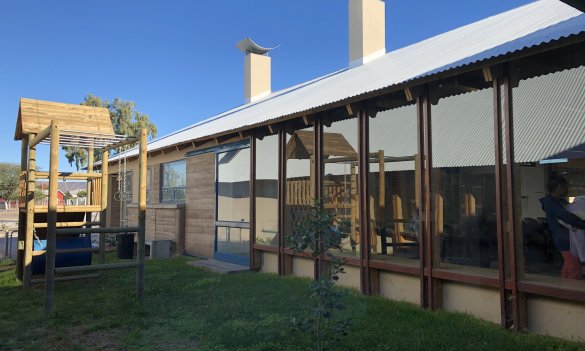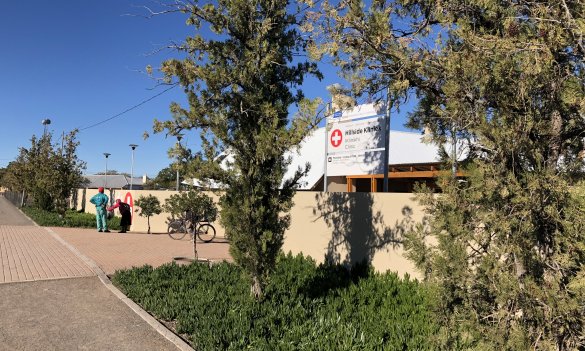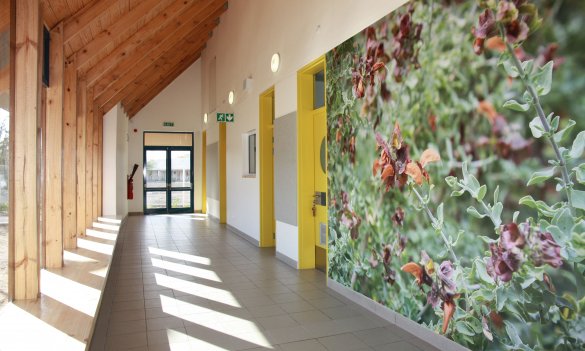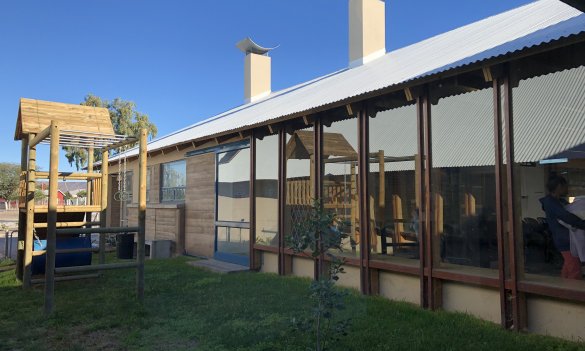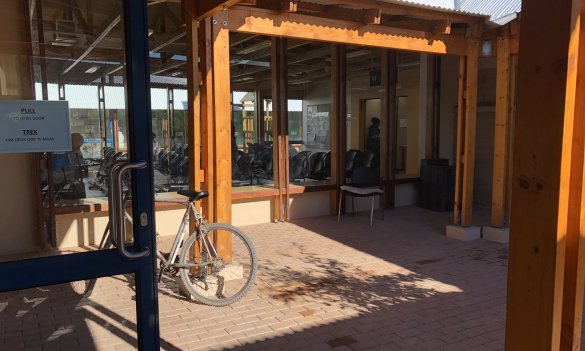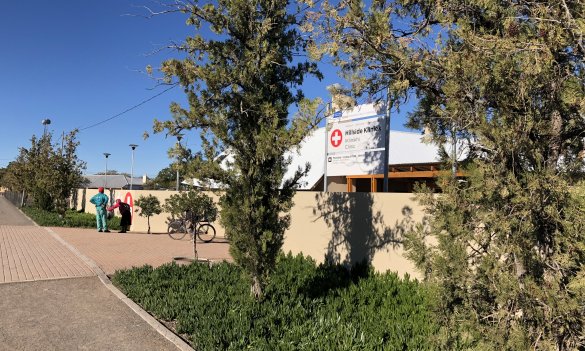The Hillside Clinic in Beaufort West is one of two Western Cape Department of Transport and Public Works projects to receive a 2019/2020 AfriSam-South African Institute of Architects (SAIA) Sustainable Design Award at an online ceremony in June 2021.
This award represents independent recognition of excellence in architectural or social design, and innovative thinking in the field of sustainability.
Completed in 2017 at a cost of R24.5 million, the Hillside Clinic is a small-scale experiment in making public healthcare facilities more environmentally friendly, and features a design that is sensitive to the local context and community.
The facility provides the full range of primary health care services including infectious disease and support care, rehabilitation, oral health, chronic disease care, and woman and child health services.
The 1 050 m² single-storey building incorporates a host of sustainable design features. It has a low environmental impact, both when it was constructed, and in its ongoing operation. This saves money in the long term, which means that limited resources that would otherwise be used to meet operational costs can be used to benefit the public in other ways.
An innovative passive design approach was adopted to mitigate the extreme climatic conditions of the Karoo and reduce the need for heating and cooling.
Thick rammed earth walls were chosen for their high thermal mass. They are slow to heat up, which keeps the interior cool during the intense heat of the day.
Once they are warm, they are slow to cool down, which keeps the building warm at night. The soil for these walls was obtained from the nearby Beaufort West dam.
Underground thermal rock stores with ventilation chimneys are used to pre-heat and pre-cool the air from the outside before it is circulated into the facility.
Ventilation chimneys draw in air high above the ground where it is less dusty and take it down through rock stores underneath the building which temper the air before it goes to the air conditioning system. The soil for the rammed earth walls and the rock for the store were locally harvested.
The clinic was designed to optimise natural daylight. North-facing single-banked corridors and large overhangs limit the penetration of the sun in summer, but allow winter sunlight deep into the building. The corridors are wide enough to incorporate patient waiting areas, and are located around landscaped courtyards that draw on plants from the area traditionally used for medical remedies.
Other sustainable design features include energyefficient light fittings, solar water heating, and a borehole for irrigation of the water-wise landscaping.
The award citation says, “the architecture relates to the urban-domestic context creating an inviting scaled building that welcomes the community whilst being a beacon of hope”.
It recognises the innovative alternative approach to the building’s airflow management using the rock-store system.
DTPW's placemaking performance and leadership are praised in the following way: “From consulting with the community to employing local labour, the building acts as a centre for dignity and change on socio-economic levels… The Department … is a champion due to [its] willingness to experiment with the use of rammed earth as a material”.
DTPW delivers construction, upgrading and maintenance of health facilities across the Western Cape for the citizen, this means better opportunities to access high-quality public health care.

